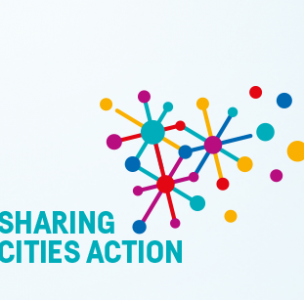An invitation to build an open data commons and visualization resource about sharing cities and the collaborative economy, for research, entrepreneurship and public policy development.
Sharing Data Commons (Beta version)
The Sharing Data Commons project aims to generate valuable tools and knowledge for:
- Public administrators in charge of public policies and economic activity in a given city or urban district, who want to access and share data related to the sharing economy and policies, in order to increase transparency and take informed decisions.
- Researchers who would like to contribute with its own research generated data or develop studies from the data available.
- Entrepreneurs aiming to explore the use of the data for new initiatives and enterprises.
- Other stakeholders (journalists, informed citizens, civic entities, etc) who want to understand what’s going on in cities in relation to new collaborative economy activity.
An Invitation to Join
Without the ambition of fully solving this, the beta version of the Sharing data Commons (in the form of a minimum valuable product) is currently an invitation to other institutions and cities to create a commons consortium to develop the project.
The project is initially promoted by Dimmons research group at IN3 – Universitat Oberta de Catalunya and by The Data Place, supported by Barcelona City Council. It has been built in the framework of the organising of the Sharing Cities Summit 2018. The intention is to gather a consortium of other institutions to develop together the project.
Contact us if you would like to join the consortium or have any suggestion.
Sharing Cities Summit Barcelona 2018 will take place in Barcelona on 12th November 2018. The event will gather together Mayors and Deputy Mayors from leading cities from around the world, and the ecosystem of main actors on the sharing economy (enterprises, foundations, networks and research centers) to discuss how the continuous growth of sharing economies affect the life and economic development of the cities, and what innovative measures can be taken to meet the challenges and opportunities we face, such as how to differentiate digital platforms which are not constructed on truly collaborative models.
Why a Sharing Data Platform? Strategies Behind the Design of the Sharing Data Commons
The creation of this data commons on the sharing and collaborative economy would like to be a node on open knowledge related to sharing platforms, valorizing and feeding open data practices around the sharing economy ecosystem, to promote the generation of derivative initiatives, in order to take advantage of the research, economic, and policy opportunities offered by an open ecosystem focused on the sharing economy.
At the same time, we aim to address key challenges around data and the sharing economy. There’s a lot of disaggregation of data sources about collaborative economy, from few open datasets provided by platforms like Uber or other ones, to data generated via web scraping and hosted in separated web projects. The main problematic focus of this development is the scarcity of autonomous, third party datasets for understanding the behaviour of sharing economy platforms. Cases like Uber or AirBnB usually give access to data only to selected researchers, which represents a problematic addressed already by open access principles.
For a more complete report of current data practices at the sharing economy please consult the resource: Big Data & Collaborative Economy State of the art and Data report (2016).
For a resource on business models based on open data at the sharing economy see The value of data: An analysis of closed-urban-data-based and open-data-based business models by Bruno Carballa Smichowski from Dimmons.
Implications of Accessing Data at the Sharing Economy
There seems to be an opportunity in the fact that to really understand the phenomena of the sharing economy at the city level, you have to cross it with descriptive data of very different nature and origin (such as City Council Data, local market data, human transit data and Open Data, etc), which can put to use lots of these datasets and provide novel insights due to the intermingling of different kinds of data.
On the other hand, the analysis and modelling of the dynamics (both human and algorithmically driven) implied in these human interchanges can give us really powerful and unforeseen insights into community and peer to peer market dynamic, in order to assess public policy innovations in this field and pioneer research, which can really advance the state of the art via Data Science and Big Data Analysis.
Visit Sharing Data Commons (Beta version)

